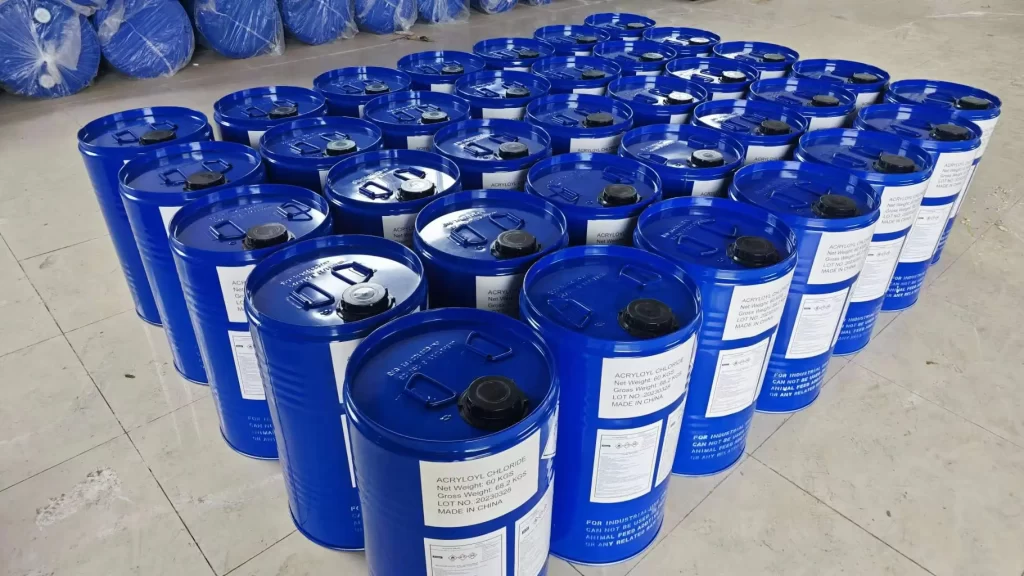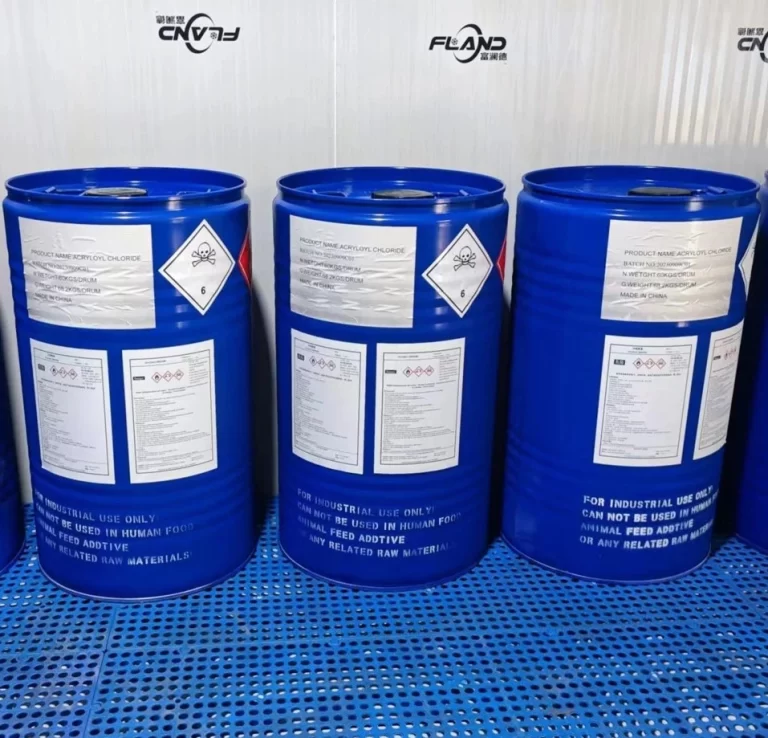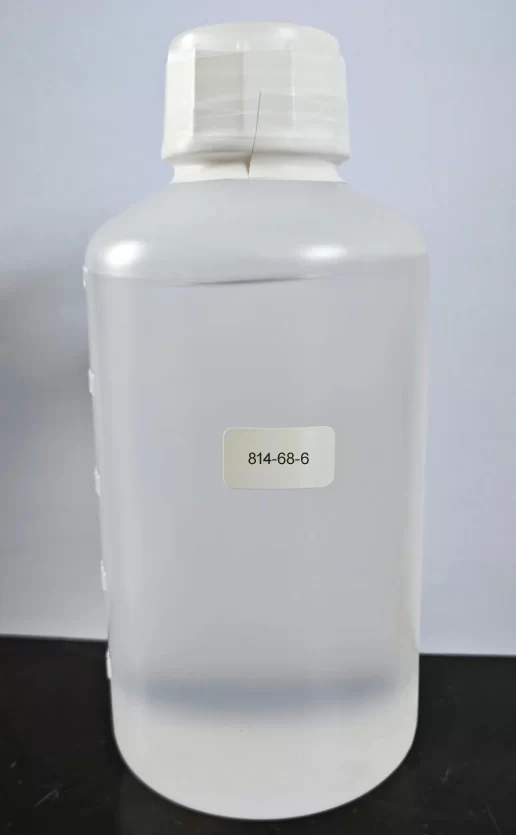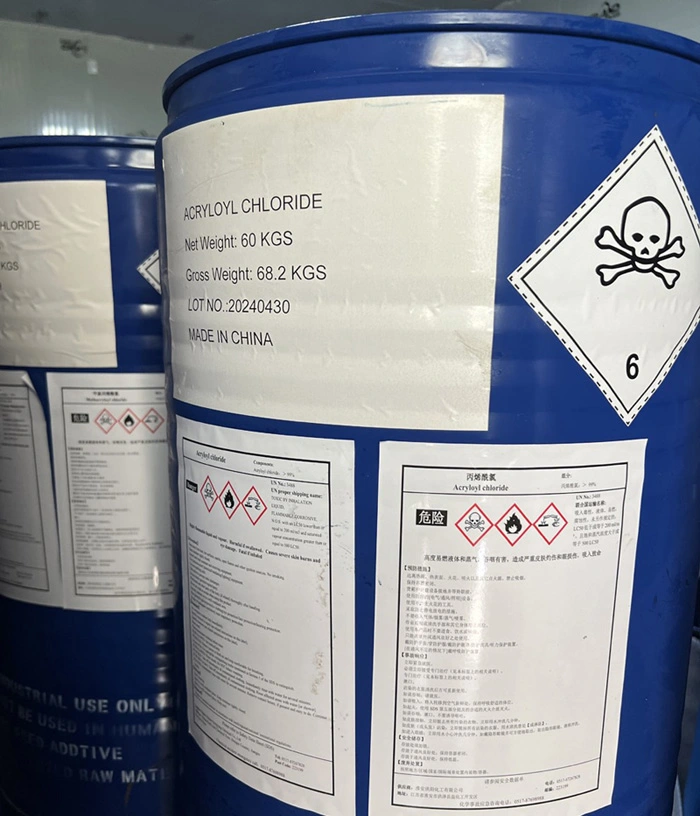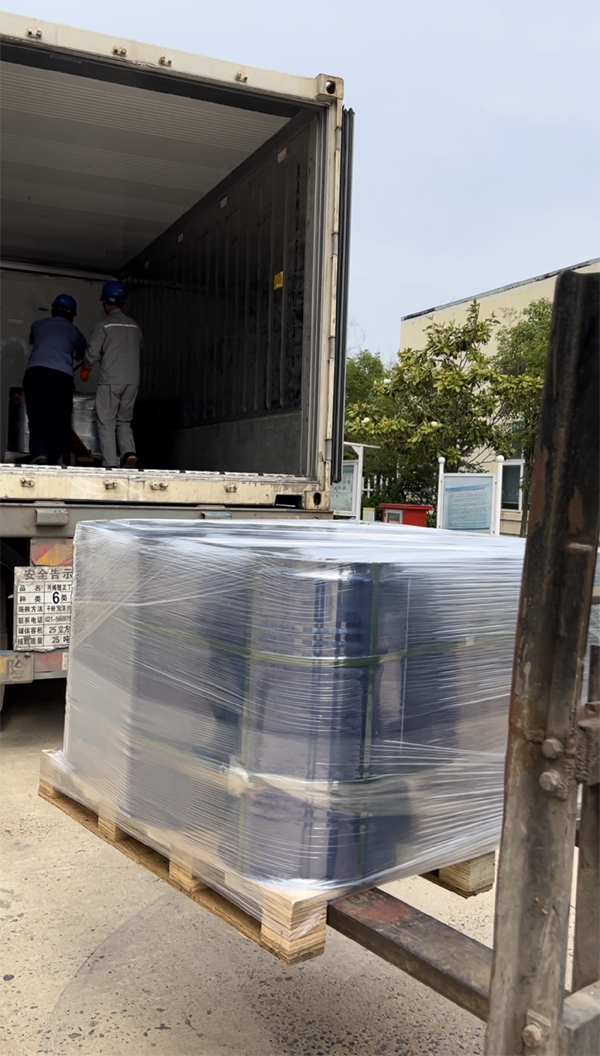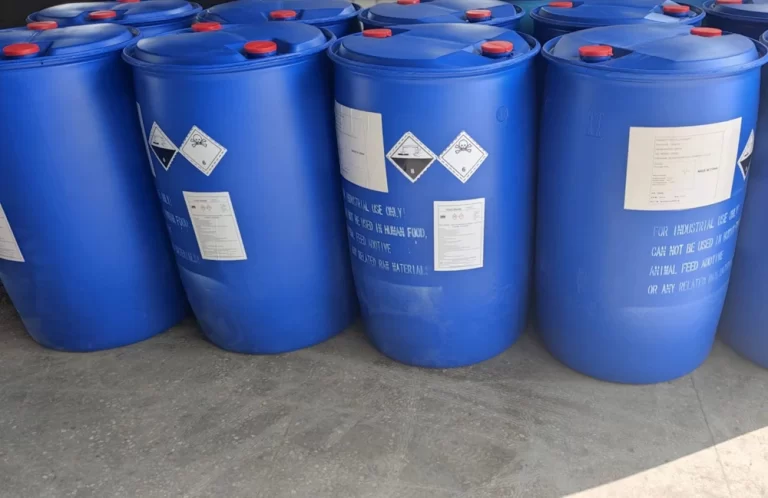Table of contents
1. Understanding Acryloyl Chloride
2. Synthesis of Acryloyl Chloride
3. Applications of Acryloyl Chloride
4. Safety Considerations And Storage
5. Conclusion
Introduction:
In the world of organic chemistry, certain compounds stand out for their versatility and significance in various industrial applications. One such compound is acryloyl chloride also know as 2-propenoyl chloride; acrylic acid chloride; CAS No.: 814-68-6, a potent reagent with a wide array of uses ranging from polymer synthesis to pharmaceuticals. In this blog post, we delve into the intriguing world of acryloyl chloride, exploring its properties, synthesis, and diverse applications.
1. Understanding Acryloyl Chloride(814-68-6)
Acryloyl chloride, with the CAS No.: 814-68-6 and chemical formula CH2=CHC(O)Cl, belongs to the class of acyl chlorides. It is characterized by its reactive nature, stemming from the presence of both the acyl chloride and alkene functional groups. This unique combination makes acryloyl chloride a valuable building block in organic synthesis. Due to acryloyl chloride is easily to polymerize, in order to avoid the polymerization problem, there are inhibitor or stablizer like 4-Methoxyphenol (MEHQ) or an antioxidant butylated hydroxytoluene (BHT). The content of stabilizer depends on different application. Our current standard method is to add MEHQ around 1000ppm when making a packing, it also can according to customers’ request.
2. Synthesis of Acryloyl Chloride(814-68-6)
Acryloyl chloride is typically synthesized from acrylic acid through reaction with thionyl chloride or phosphorus trichloride. This process yields a highly reactive compound ready for further reactions.
3. Applications of Acryloyl Chloride(814-68-6)
Polymer Synthesis: Acryloyl chloride plays a crucial role in the production of acrylic polymers and copolymers. Through reaction with compounds containing double bonds, such as alkenes or alcohols, acryloyl chloride serves as a precursor to acrylic monomers. These monomers undergo polymerization to form a diverse range of acrylic-based materials used in coatings, adhesives, textiles, and plastics.
Organic Synthesis: As a versatile reagent, acryloyl chloride finds application in organic synthesis for introducing the acryloyl group into various organic molecules. This group serves as a valuable functional moiety, facilitating the synthesis of pharmaceuticals, agrochemicals, and specialty chemicals.
4.Safety Considerations And Storage
The transport hazard class of Acryloyl chloride is 6.1; The subsidiary hazard class is 3+8: It is packing group: I
It’s essential to emphasize the importance of handling acryloyl chloride with care. Due to its highly reactive and corrosive nature, proper safety precautions must be followed in laboratory and industrial settings. Adequate ventilation, personal protective equipment, and safe handling procedures are imperative to mitigate risks associated with this compound.
In case of storage, because temperature also have an impact on the polymerization of acryloyl chloride, it is suggest to store the finished product in low temperature and keep the package sealed and stored in cool, dry warehouse and the best choice is to store in reefer warehouse.
5. Conclusion
Acryloyl chloride stands as a cornerstone in organic synthesis, offering a gateway to the creation of diverse compounds with wide-ranging applications. From polymer production to pharmaceutical synthesis, its versatility and reactivity make it an indispensable tool for chemists and researchers alike. However, its potent nature necessitates cautious handling and adherence to safety protocols. As we continue to explore the frontiers of organic chemistry, acryloyl chloride remains a shining example of innovation and utility in chemical synthesis.
For more Acryloyl chloride information please visit product details

